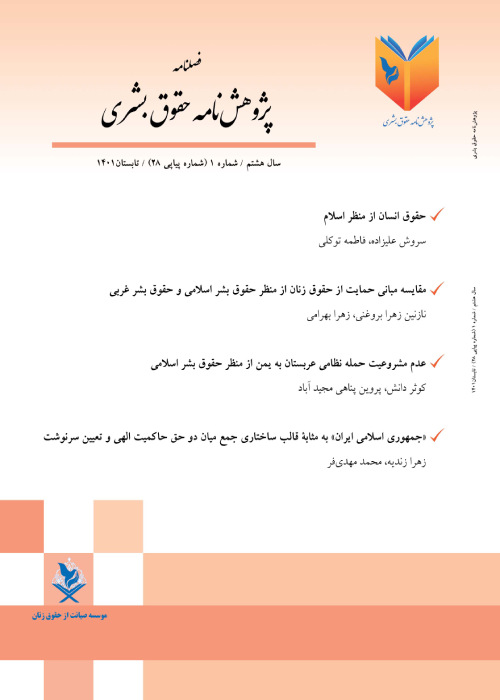Analyzing the effectiveness of international human rights mechanisms in deterring the effects of unilateral sanctions (with emphasis on the ill effects of unilateral US sanctions against Iran)
Our current world is a world of intertwined economies; So that the continuation of economic life of countries depends on international cooperation. According to the United Nations Charter (1945) and the two Covenants (1966), the states are committed to strengthen world peace, expand international relations and strengthen respect for fundamental human rights and freedoms; While imposing unilateral sanctions is in clear contradiction with these commitments. The present article with a comprehensive review of the concept of sanctions and its types; It seeks to understand the position of unilateral sanctions in international law, as well as the reactions and capacities of the international community to face such coercive measures. Unilateral sanctions, especially primary and secondary economic sanctions(extra-territorial), which are carried out outside the provisions of the United Nations Charter, are used as tools of political pressure in the hands of powerful countries to impose their intentions on the target governments of such actions (including the unilateral coercive sanctions of the United States against Iran). Unilateral sanctions by violating the principles of “legal equality of states”, “international cooperation”, “non-intervention” and “non-use of force” violate the standards of international law, especially in the field of fundamental human rights. In recent years, there have been many reactions in the form of offering proposals, issuing statements and resolutions in opposition to unilateral coercive sanctions and continues. Despite the fact that the international community has many political capacities (enlightenment of public opinion, issuing announcements and statements) and legal (provisions of the United Nations Charter and covenants, specific treaty obligations, judicial references, etc.) in order to prevent or reduce the effects of unilateral sanctions; However, due to obstacles such as “veto” power in the hands of the sanctioners and the actual dependence of most countries on their Political-Economic Hegemony, it has not been very successful. It seems that, in addition to the mentioned mechanisms, until a global consensus is formed against these unilateral coercive measures, achieving the appropriate result will be far from mind.


